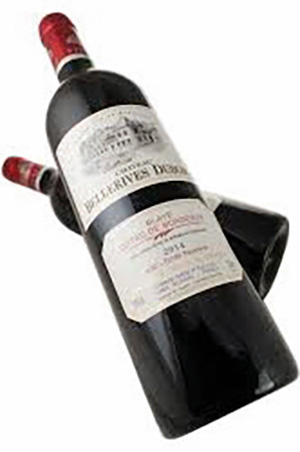





Last week I had the pleasure of joining two friends, both somewhat well-known kosher wine critics, at a local wine tasting, where I tasted some of the most expensive and flashy bottles currently available in the kosher marketplace. It was a pleasure to see so many bottles open, and so many people enjoying, and indeed celebrating, the vast improvements that the wine business has brought to kosher oenology in the past decade. Indeed, there are more people working in the kosher wine business, more non-kosher wineries doing kosher runs and more marketing being done around kosher wine than ever before. But that is not what this article is about.
What this article is about is helping you choose wine you like for your Seder without going broke. There used to be a great difference between wine I liked and wine I thought was good, or expensive enough to be impressive, and I want to share what I have learned so that perhaps you can be confident in choosing what you like as well. (Particularly for Pesach, I have always felt that if one must drink four glasses of something, it should be chosen with care and self-awareness, and that you should think about what you can enjoy drinking a full glass of, without feeling bloated or over-satiated or, God forbid, too sleepy, before that fourth cup.) I also like to think about what I am serving as well, and hope to make sure that any bottle on the table goes well with whatever is being eaten.
With that in mind, what I will be drinking, and indeed serving, this year at my Sedarim are French Bordeaux wines. As you will likely read elsewhere, the wines in France were very, very good in 2014, and it’s around now that these kosher Bordeaux wines are starting to reach their peak. The Bordeaux region has, since Medieval times, been an excellent environment for growing vines, and Bordeaux wines are generally blends comprising Cabernet Sauvignon, Cabernet Franc, Merlot, Petit Verdot and Malbec. Anyone who likes dry, fruity wines will be extremely comfortable trying Bordeaux.
“These are young wines, vin de pays (country wine),” said Scott Maybaum of Wine Country. They are not overly sophisticated, but they don’t have to be. They are just good table wines,” he told me. In fact, kosher French wines are so much on the rise that Maybaum has extended the kosher wine section in the Bergenfield store to hold at least 20 percent more bottles of kosher wines, mainly French. This brings the total amount of kosher wines bottles for sale in his store to approximately 50 percent of all the 750ml bottles for sale.
Another very important point is that most of the wines, particularly La Fille Du Boucher 2014 (The Butcher’s Daughter), retail at around $12, as do all the other wines I am recommending in this column. This is not a joke. These are excellent dry wines, with fancy bottles (with French words and all!) and (I won’t tell if you won’t) no matter how hard you try, they are not likely to break the bank.
“While the most popular non-kosher wines we sell cost about $12, by comparison, our most popular kosher wines sell for about $17. Since expanding our selection of kosher offerings, we now carry more wines at lower price points. As a result, this season I anticipate we will see greater sales and more wines purchased at the traditionally non-kosher price point of $12. We have some great values from France,” said Maybaum.
The La Tour Pavée Bordeaux Supérieur 2014 is absolutely excellent; it just brims with cheer and drinkability with bold fruit and easy smoothness. Château Bellerives Dubois Blaye Côte de Bordeaux is the only one of the five I tasted with that big hit of pleasant minerality that is generally typical, and expected, of the more expensive Bordeaux.
Another wine from this region recommended particularly by Gabe Geller of Royal Wines is Château Les Riganes, “a lovely, soft wine from Bordeaux that features notes of red fruit and earth,” he said.
There were two wines here I tried for the first time. The first was the Château Jaumard Vin de Bordeaux 2014. It was so fruit-forward, with scents of cherries and raspberries, and so simple and easy that I can’t imagine anyone not liking it immediately. The second was the Château Rossignol Bordeaux 2014. Again, warm, berry notes were immediately present with a little extra acid and plumminess that was both pleasant and surprising.
I think it’s high time people start choosing wine based on what they like, and I have always liked French Bordeaux. It’s only now that it’s really a perfect time to enjoy them.
By Elizabeth Kratz










